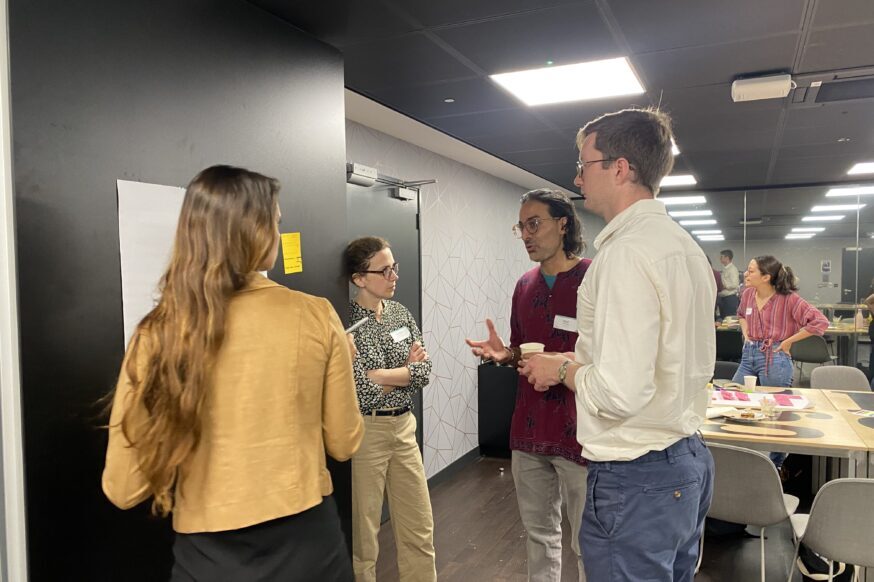How can stories change systems?
We worked with Dusseldorp Forum and Hands Up Mallee to explore how stories can be used to more effectively communicate the impact of community-led systems change work.
We have produced two reports about storytelling:



Our first report: Storytelling for systems change
Community-led place based initiatives are modelling new ways of working – shifting away from top down, program-focussed approaches towards an approach grounded in systems thinking and community-led innovations.
However, while these stories of change are sitting in communities, they’re often not being told or celebrated. We wanted to understand why this is, and what might be done to better enable these stories to be shared and heard.
The story of storytelling
We talked to a range of people to uncover the story of storytelling – including collective impact backbone team members, community members, storytelling experts, and those working in and around community-led systems change initiatives across Australia. We explored the roles stories play in different communities; what good storytelling looks like; what barriers to storytelling might be; and what role stories can play in supporting systems change.
Our findings
We have learned through this project that stories can be used both to change the system and to evaluate, understand and showcase the change that is occurring in communities. We have heard that different stories require different approaches – stories that are seeking to enable change look different to those that are seeking to celebrate change. Our key findings included:
Great stories privilege the voice of the story-holder
These stories are resonant, clear and relatable; and are guided and bound by agreed protocols.
To have an impact, stories need to be heard
For stories to effect change, the right people need to not only listen to the stories, but also hear them.
Fiona Merlin from the Hands Up Mallee Backbone summed this up with a powerful question – “how can we tell stories in ways which encourage the listener to not just hear, but actually connect to a different view?”
Technical, structural and institutional barriers can get in the way of good storytelling
Technical barriers – such as lack of skills, resources and capability – are easier to address than the structural and institutional barriers, such as power imbalances and bias.
Different stories require different approaches
Stories that are seeking to enable change look different to those that are seeking to celebrate change.
“You can’t unlearn someone else’s perspective once you’ve experienced it through a story.”
Dalit Kaplan, Storywell
“People need to be able to tell their story to change their story.”
Bre Macfarlane, Home Base Mildura
“If we’ve been telling stories based on colonial lenses, deficit mindsets, how can we expect to create new systems?”
Rona Glynn-McDonald, Common Ground
Our second report: Listening to Understand
What does it take for government and philanthropy to listen to stories meaningfully?
To make real change, we need to get better at telling stories. But governments and philanthropy also need to get better at listening to them. For this report, we turn our attention from storytelling to storylistening.
What we heard
We spoke to government officials, funders, academics, and other practitioners about creating the conditions for stories to be heard by those who need to hear them.
Three key questions guided these conversations:
How are stories currently used by government and philanthropy?
“Stories allow governments to hear and see the realities of their policies and practices from the ground up.”
What gets in the way of stories being listened to and understood?
“All the things people think about stories can also be true of data. There can be bias, inaccuracies, and omissions. People should question data just as much as they question stories.”
What might be done to build the readiness of government and philanthropy to listen more deeply?
“Bring government, philanthropy, and storytellers together to have brave conversations while avoiding the blame that tends to shut these conversations down.”
Read the report
In honour of what we’ve learned about what it means to listen and the nonlinear nature of stories, we present a rich tapestry of insights. We invite you to embark on your unique journey through this report.
Explore it from beginning to end, or choose your adventure amongst the captivating visuals and audio elements.


